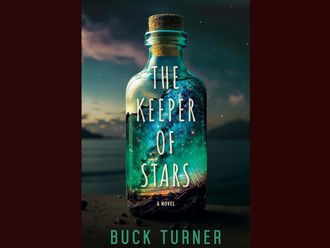One’s gob was smacked with the news that the Washington Post, the newspaper famously responsible for unseating a US president, was changing hands. No wonder initial news reports in America referred to the takeover as a shock (examples here and here and here).
The extra surprise was the identity of the buyer — none other than Amazon’s founder Jeff Bezos. For $250 million (Dh918 million) in cash — about 1 per cent of his net wealth — he has bought one of the world’s most admired papers. And, according to the Post’s own account, it wasn’t even his idea in the first place.
It was initiated by chairman Don Graham, son of the iconic publisher Kay Graham, the woman who oversaw the pioneering of the Post’s rise to journalistic prominence.
Unsurprisingly, the fact that new digital media has moved into old print media has excited much comment. Digital moves into print. Silicon Valley adopts east coast cachet. Among the most perceptive reactions came from Emily Bell, who sees it as more of a cultural statement than a business deal.
She is right, but what does Bezos plan to do with his acquisition? Given that the guy has kept his own counsel, speculation is rife, including at the Post itself (notably here by Lydia DePillis).
It is impossible to believe that Bezos has bought it in order to generate profits. Its revenue has fallen for seven successive years. Operating profits have plunged from $125.4m in 2005 to a loss of $53.7m in 2012.
And the future prospects for newsprint, as new media entrepreneurs like Bezos know only too well, is exceedingly gloomy.
But, as Alan Mutter points out, this is the first time a major digital figure has taken charge of an old mainstream media organisation. So maybe he has the magic solution.
It’s hardly a stretch to imagine that he will set out to popularise and, most importantly, commercialise the Post’s website. DePillis quotes Mutter as suggesting that he might introduce e-commerce to every page of the Post.
He knows the value of having intimate knowledge of every Amazon customer’s desires and then “helping” them to fulfil them with the power of suggestive email recommendations. He could he do the same for the Post’s readers.
Continuing the theme of what Amazon (and Bezos) does best, such as the invention and marketing of its Kindle e-reader, it is possible to imagine (another Mutter speculation) that the Washington Post could be the default news app on every Kindle.
But that begs a much more fundamental question: is the Post worth promoting across America — and the rest of the world for that matter — as the go-to news service?
For all its fame and prestige, the paper has tended to live off its 1972 Watergate laurels. That isn’t to say it hasn’t published excellent journalism since.
It has much more to do with the direction, or lack of direction, by its owners and managers. Quite simply, the Post failed to build on its great journalistic scoop to become a national, as distinct from regional, title.
Instead, it allowed the New York Times to develop a national profile and status while the Post missed the boat.
Even so, it may not be too late. The Times may not wish for the competition, but the people might well benefit. If Bezos sets his mind to it, he could transform the Post’s fortunes by forging it into a paper appealing from east to west coast, online and in print. If so, it will need to up its editorial game.
Cross-promotion between Amazon, on its site and through Kindle, with the Post could prove beneficial. And, another Mutter thought, Amazon’s “physical delivery system” is wonderfully efficient. Imagine a sampling exercise in which a free Post arrives with every Amazon book purchase.
No wonder DePillis believes a Bezos-owned Post — even an unprofitable one, a sort of loss-leader if you like — could “complement and amplify other regions of Amazonia.”
There is another aspect we shouldn’t overlook in our speculation on Bezos’s motives: public service. If we put all commercial considerations to one side, then it’s plausible to see Bezos’s purchase as an act of philanthropy.
Emily Bell mentions this too, arguing that there are wealthy men who, fearing the demise of old media, believe journalism “still constitutes a benefit to society”.
This implies, though I’m sure Emily would disagree with the notion, that online journalism is somehow inferior to print journalism (or, at least, that old media news outlets retain editorial skills, and journalistic prestige, that digital start-ups have yet to acquire).
I think, in this transitional stage, there is something to that argument. Perhaps Bezos has grasped that too.
— Guardian News & Media Limited
Roy Greenslade is professor of journalism at City University, and was editor of the Daily Mirror from 1990-91








